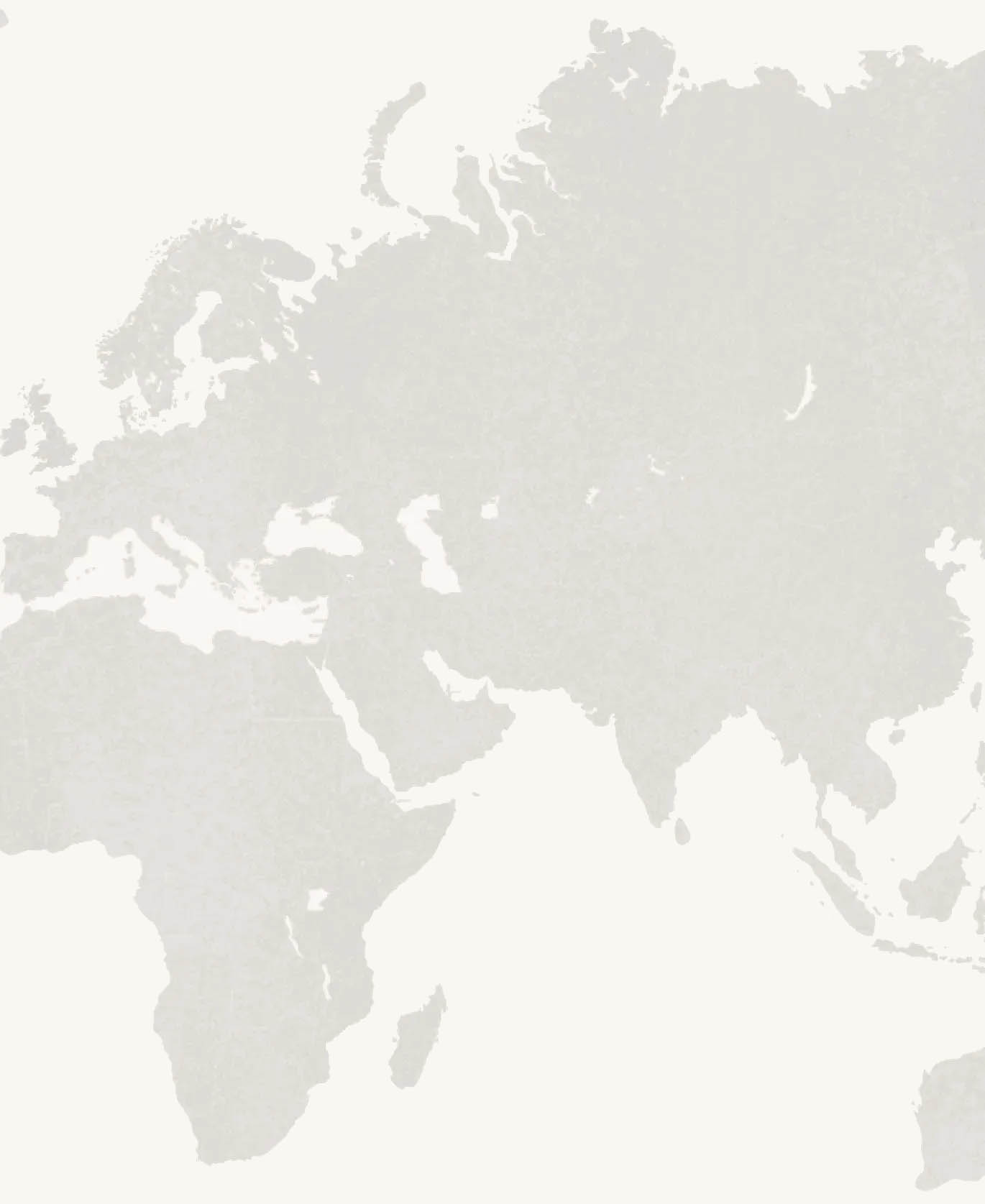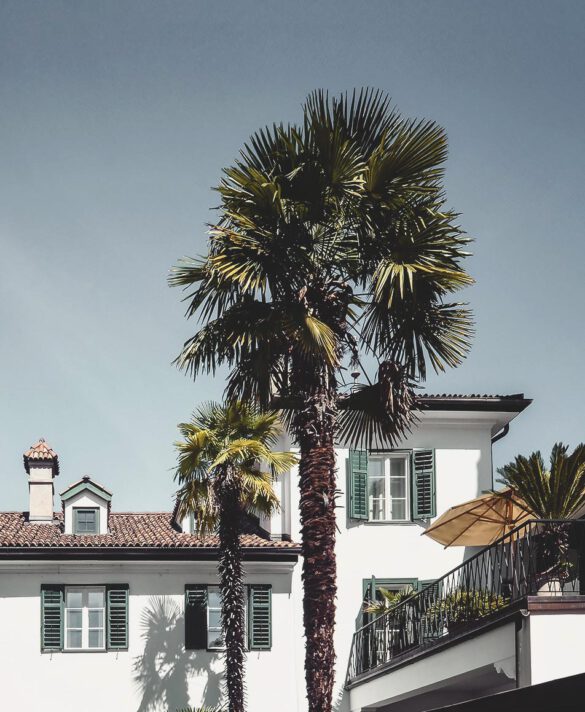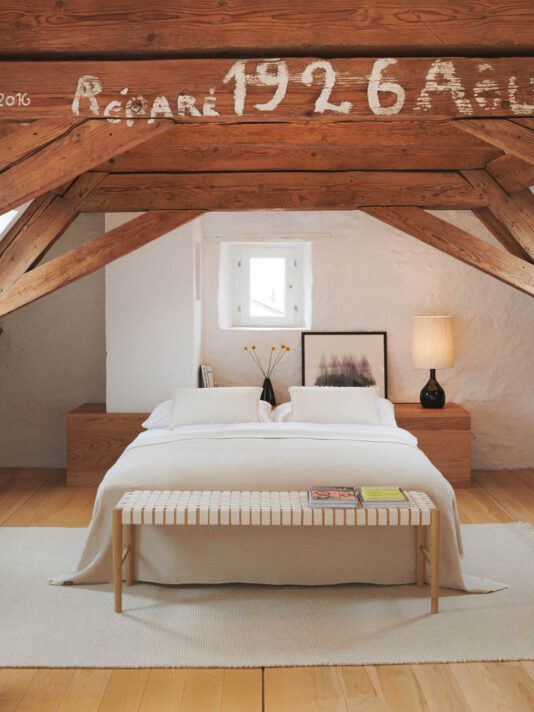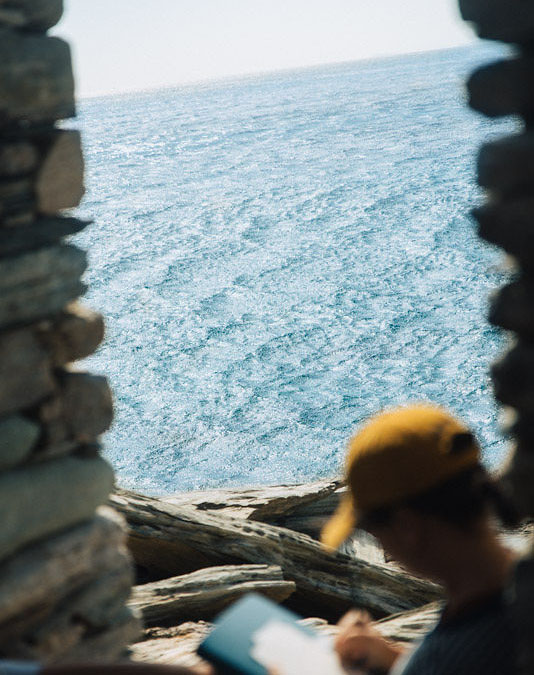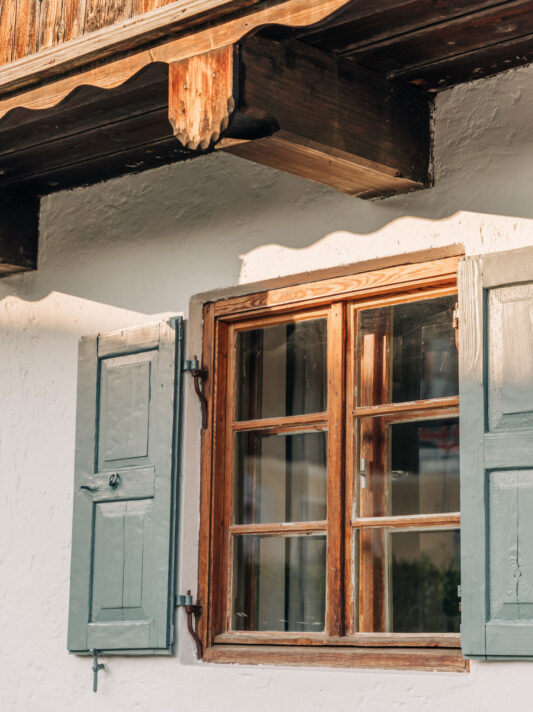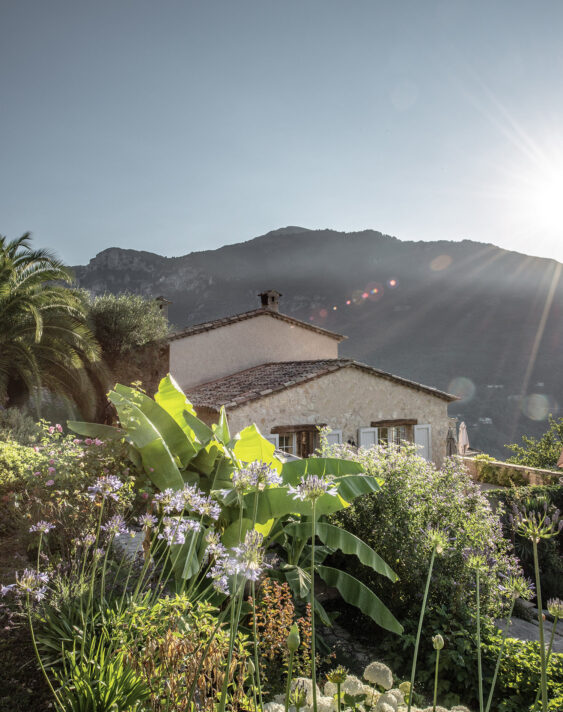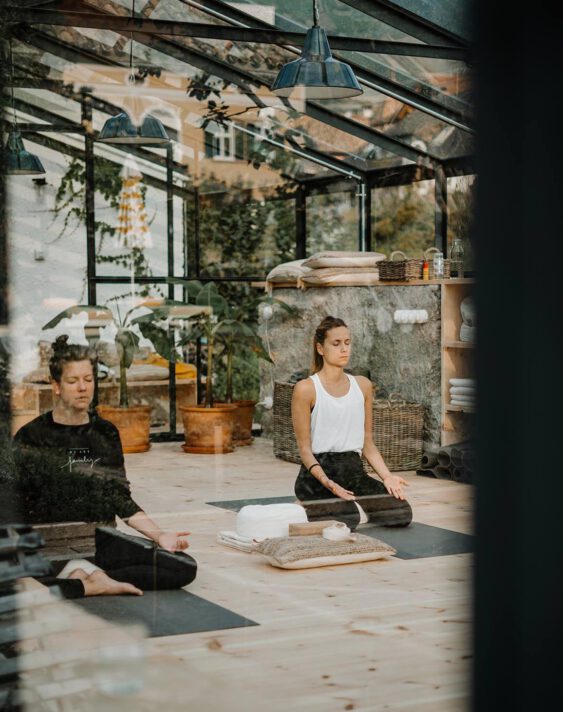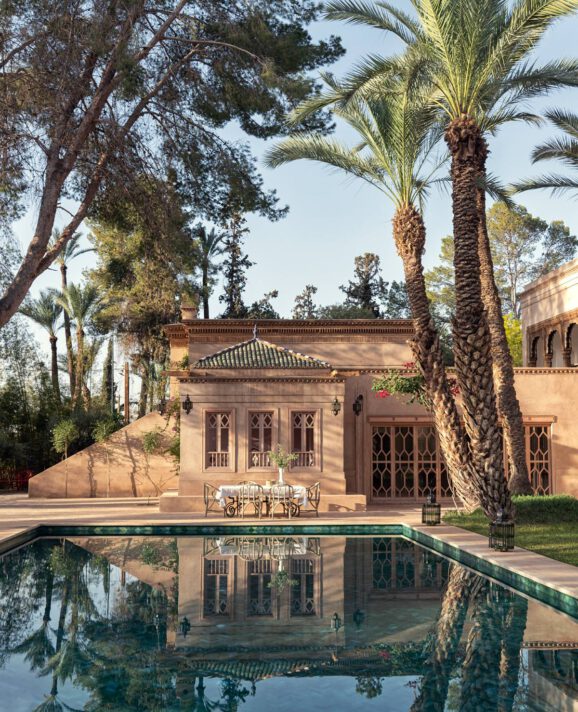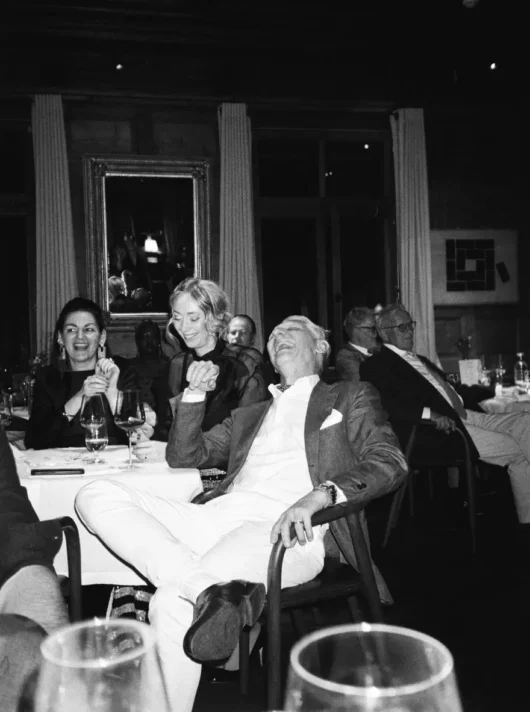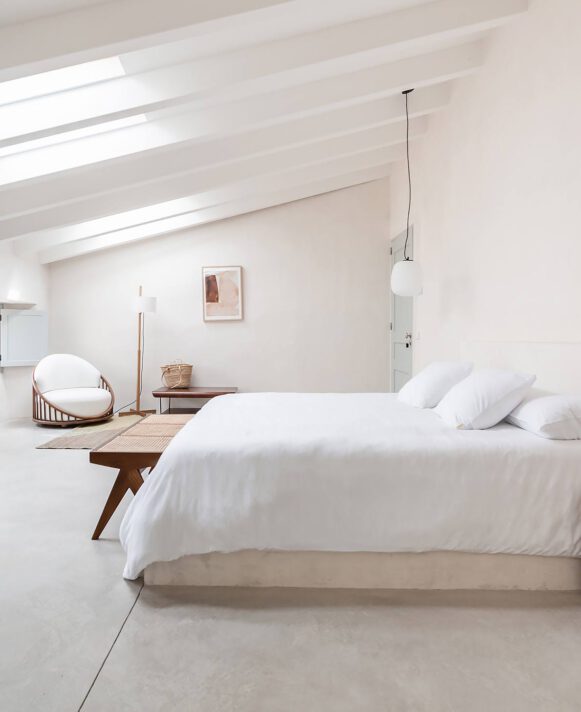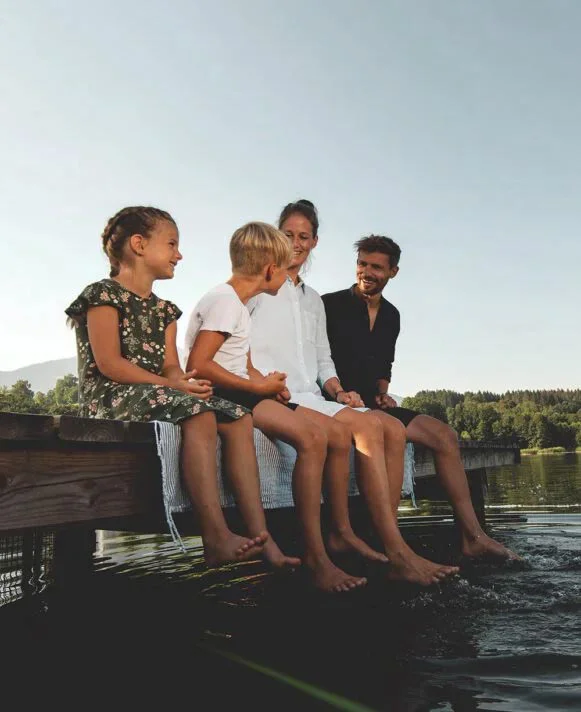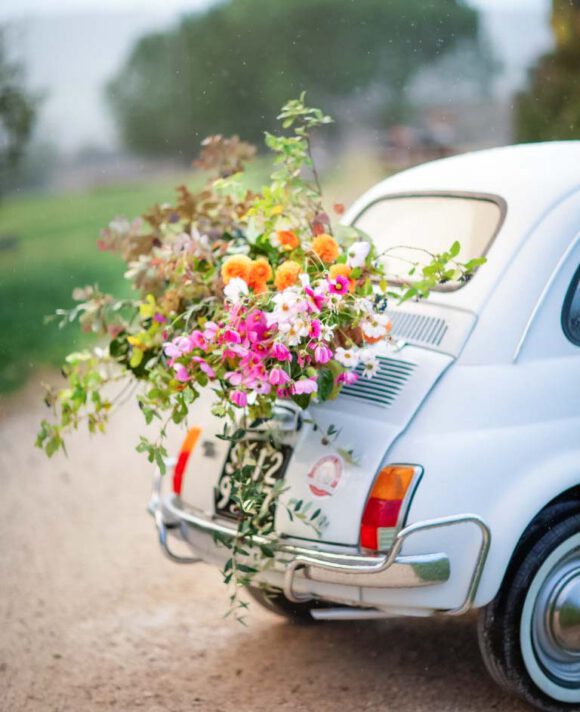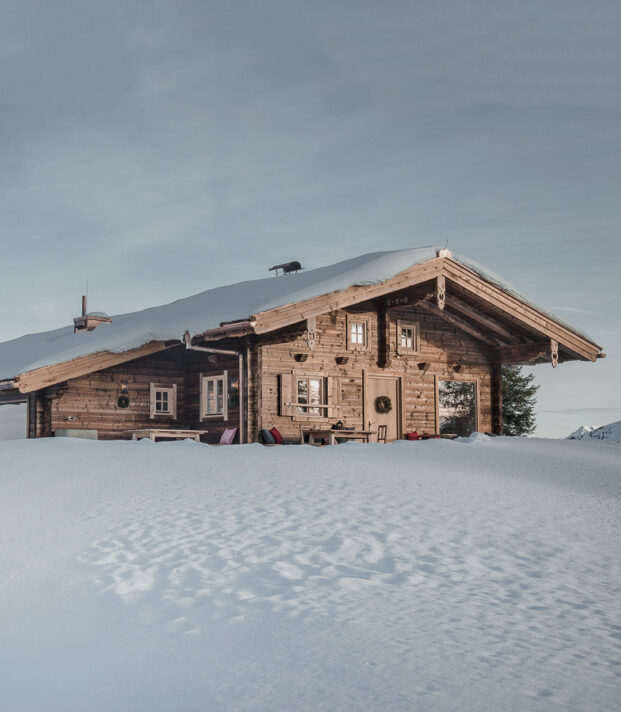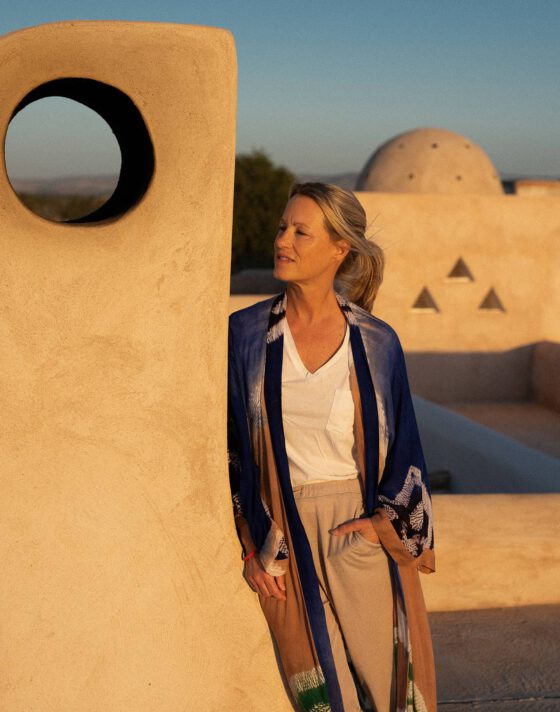Since 2023, Michael Damian and his sister Monika have been running the Cyprianerhof, a gem among South Tyrol’s mountain retreats and a member of our hotel collection. When Michael met his partner Diego Villegas during his studies in Vienna, the duo soon became a trio – and together, they’re trying to reimagine what hospitality in the Dolomites means.
Their goal? “Less bathrobe, more culture.” The two “foreign ministers” of the hotel have big plans for its 85 rooms, pool and mountain pond – so we spoke with them at one of our many visits to the hotel underneath the famous Rosengarten scenery.
Michael & Diego, how did you actually meet?
Michael: We met in Vienna during our studies. Diego was at the University of Music and Performing Arts, and I was at the University of Economics. Diego studied opera singing – not the most common subject!
Diego, you’re originally from Colombia. Quite an unusual background for someone now living in the South Tyrolean mountains. Tell us a bit about your childhood.
Diego: Despite what people might imagine, I had a wonderful childhood in Bogotá. I grew up in a loving family and attended an alternative school where academic excellence went hand in hand with personal development. It was a very open, creative environment – I played volleyball, sang in choirs, went to the theatre. City life was full of inspiration.
What’s fascinating is how different Michael’s and my upbringings were. I spent most of my time indoors – in big cities, children rarely play outside, and Bogotá’s climate doesn’t exactly invite you to. But at the same time, growing up in a metropolis means you’re exposed to greater diversity, to different ways of thinking and living. It’s easier to explore who you are – your identity, your taste, even your sexuality.
And then Michael took you up into the mountains of Tiers. Was that a culture shock?
Diego: The Cyprianerhof impressed me from the first moment – it’s a place that radiates passion, dedication and vision. You feel the legacy of a family with a big heart. From the outside, everything seems perfect, almost untouchable. From the inside, it’s of course much more complex – and much more interesting!
Michael, what was it like growing up here? For most people, this place is a dream holiday – for you, it was home.
Michael: The Cyprianerhof means a lot to me. It’s not only my current life project, but also my childhood home – a place filled with people I’ve known since I was small. I’ll admit, during my teenage years it sometimes felt like a burden, a path laid out for me that I needed to question. But after university I found my way back – and I’m grateful for that. Over the past decade my parents transformed a small guesthouse into a magical resort. It’s a great responsibility, yes, but above all, it’s a place full of inspiration.
Has South Tyrol changed in your eyes over the years?
Diego: Absolutely. My perspective has evolved too – I arrived here as an outsider, integrated into different circles, and saw how openness and diversity have grown. More young people return after studying abroad, and more foreigners choose to make South Tyrol their home. The university in Bolzano is expanding, becoming more international. All of this is changing the region’s character – in a good way.
Michael: As a child, it was paradise – forests, freedom, safety. As a teenager, it felt narrow-minded and remote. Later, while studying in Vienna, it became a love-hate relationship. But coming back surprised me: South Tyrol had matured. Businesses were thriving internationally, the culinary scene was flourishing, and there was a new sense of openness and innovation. It’s become a genuinely forward-looking place.
Of course, prosperity also brings challenges. The generations before us were incredibly hard-working, even self-sacrificing. My generation? We’ll see if we manage to live up to that legacy.
Now you’ve launched Cultura Dolomiti. What is it, and how did it come about?
Diego: Cultura Dolomiti grew out of reflection – honouring the past while imagining the future. We worked on the concept for more than two years, with expert support. Now that it’s taking shape, we’re refining it, aiming for excellence.
Michael: At its core, Cultura Dolomiti is guided by a few key values: playfulness, the joy of mornings, authenticity, health and community. We want guests to experience the kind of life we live here in the Dolomites – through mountain sports, food, wellbeing, art and togetherness.
Diego: It’s also about helping guests connect more deeply with the place and culture, to learn something and perhaps take a piece of it home. For us, Cultura Dolomiti answers the question: why are we doing all this? It’s about meaning, quality, depth – and rethinking hospitality beyond the traditional boundaries.
Most South Tyrolean hotels are about hiking, pools, and fine food. What does the Cyprianerhof want to be in the future?
Michael: A Third Place. In sociology, the “first place” is home, the “second place” is work – and the “third place” is where people come together freely, without pressure or roles. Think of the Viennese coffee house: a cradle of art, ideas and encounters. We want the Cyprianerhof to have a similar effect – to inspire people, not just for a week’s holiday, but long after they’ve gone home.
And how do you make that happen in practice?
Michael: By creating opportunities for genuine encounters – hikes, yoga sessions, workshops, concerts, shared dinners. Science shows that social connection, movement, good food, fresh air and kindness contribute to longevity. We recently attended a longevity workshop – it’s astonishing how simple habits can extend not just lifespan, but healthspan. Cultura Dolomiti builds exactly on that idea: a place that’s good for you, where friendliness and community are the true luxuries.
Diego, you’re a professional singer. What can children learn from singing?
Diego: Singing connects you with your own voice – which is much more than sound. It’s identity, opinion, and expression. It helps you access language, poetry, emotion. It builds confidence and teaches you to listen – to yourself and others. And it’s universal. Everyone can sing, at any age. It’s one of the most primal forms of human creativity.
What would your ideal guest look like – the Cultura Dolomiti archetype?
Michael: There’s no single “ideal” guest, more a constellation of kindred spirits.
They’re authentic, curious, quality-minded.
They value real experiences over staged perfection.
They care for nature, for others, for themselves.
They appreciate excellence, but without snobbery.
They’re explorers, seekers, lovers of beauty and depth.
They prefer slow life to high-speed tourism.
They want to connect – with the landscape, the place, the people.
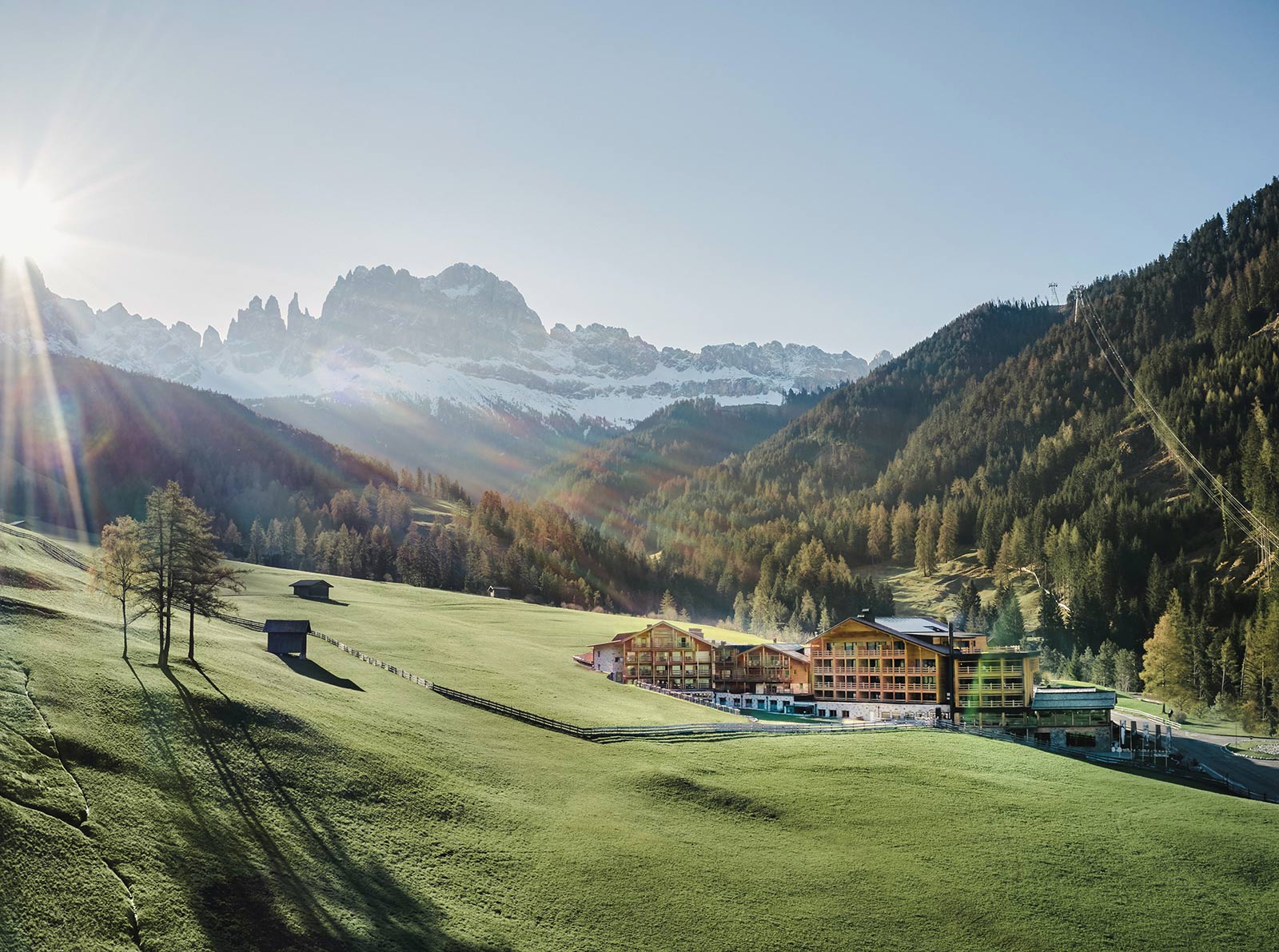
Can hoteliers still appreciate their own paradise, or is it all work and repairs?
Diego: It’s hard not to see everything analytically – what’s broken, what could be improved. But it’s essential to pause, to feel the atmosphere you want to create. We work with emotions, and you can only evoke them if you feel them yourself. That’s also a strategy: putting yourself in the guest’s shoes. Seeing your home with fresh eyes. After all, to create a happy place, you have to be happy yourself.
You’ve now got direct gondola access to the Carezza ski area. Does that change your winter guests?
Michael: Very much so. Before, we struggled to attract skiers – they’re understandably comfort-driven and prefer ski-in, ski-out hotels. Now, with the new connection, we can offer both convenience and character. And skiing itself is changing: people combine it with other activities. Families can tailor their own mix of adventure and relaxation. We’re in the middle of the ski area, the hiking trails, and untouched nature – a rare combination.
Your favourite hikes around the Cyprianerhof?
Michael: Hard to choose! The area radiates a special energy everywhere. A few classics: the climb via Bärenfalle and Hammerwand, with stunning panoramic views, ending at Tschafon – perfect for a rest and a view of the Rosengarten massif. Or the trail to Grasleitenhütte, a beautiful route through wild alpine scenery.
The Cyprianerhof is, in essence, a luxurious base camp for mountain adventures – all year round.
Finally: your vision for the next ten years?
Michael: On a practical level, it’s about continuous improvement – especially in service quality and as an employer, which go hand in hand. We’ll expand our Cultura Dolomiti experiences and nurture the areas with the greatest potential. But conceptually, we also imagine the hotel as a platform for artists, craftspeople and farmers – a space of exchange and creativity, much like Vienna’s historic cafés.
In 2025, we’ll celebrate my parents’ 40 years at the hotel – four decades of learning, passion and precision that built a healthy, transparent and inspiring culture. My sister Monika has been a key force for the past 15 years, especially shaping the cuisine. Our goal is truly to be a model for others – a hotel that inspires guests and peers alike. And who knows, if the formula works, perhaps it will find new homes elsewhere, too.
©Pretty Hôtels 2025


